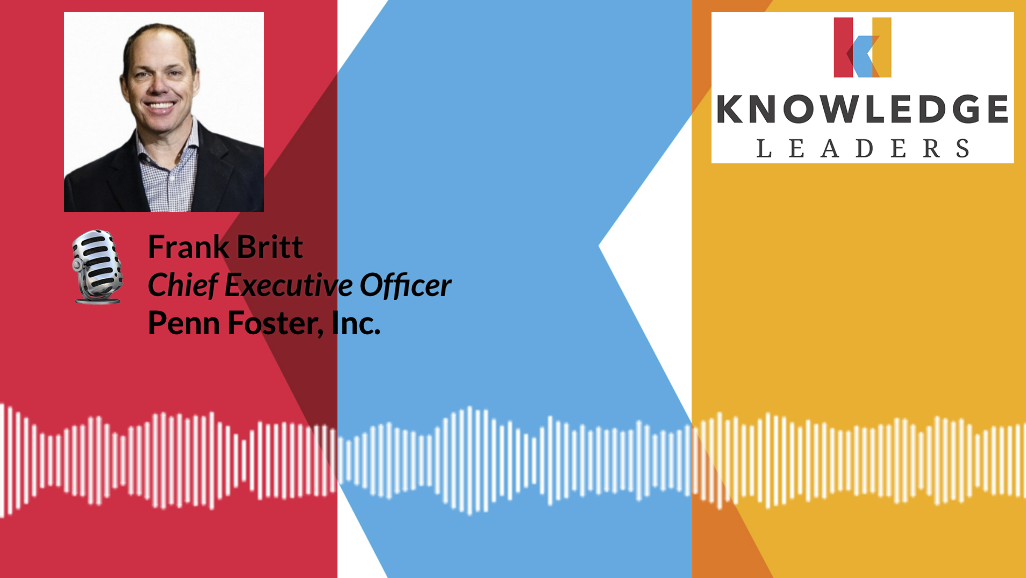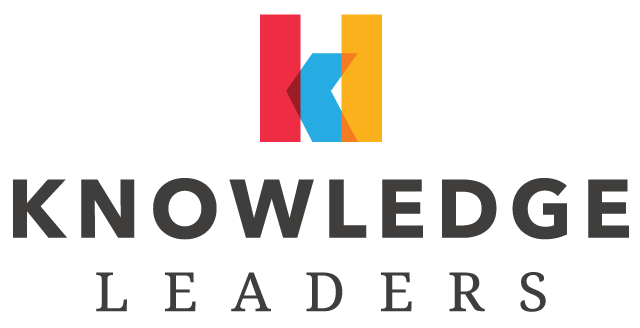
In the latest episode of Knowledge Leaders, Todd Hand sits down with Frank Britt, CEO of Penn Foster, Inc. Frank discusses financial models that can help middle-skilled workers grow professionally, as well as the way employers can help shape employee growth. They also discuss the robust history of Penn Foster, their purpose today, and more.
Learn more in this episode of the Knowledge Leaders Podcast, hosted by Todd Hand.
Listen to the Full Podcast Here
Podcast Transcript Excerpt
Todd Hand: What are some of the models out there that you think have some traction and may work in terms of not loading up learners with a ton of debt that it will take them many years if ever, to pay off?
Frank Britt: I think the good news is there’s a lot of innovation out there in terms of both education delivery and also financial models that are emerging.
I think some of the more progressive financial models include income share agreements, I think will become a more prevalent part of the education conversation. And you see progressive organizations, particularly in the IT market, starting to lean in on that.
This is essentially a deal that says I’m going to assess your capabilities and then I’m going to make some prediction on the likelihood of you completing and then going on to a quality employment alternative and I’m willing to put some skin in the game to help underwrite that investment, either partially or fully, and then on the other side of it be a beneficiary of your good work and therefore I’m essentially aligning my interest to those of the learners.
In the case of Penn Foster, our model, which over time may include examples like the one I cited, but today’s example is we believe that you should just pay as you go and if you continue to go you should continue to pay. We try to be mindful of the cash-flow realities of the cohort we serve, these so-called middle-skilled workers.
We’ve tried to create a cost structure that allows for access and affordability and calibrate the two to the scale of the cash flow of those individuals.
So, in the metaphorical “what’s in your wallet,” we think that what’s in the wallet is about $50 or $75 a month for a middle skilled worker based on the rest of their budgets and we think we can accommodate that and deliver them a superior value that gets them where they need to go over time but doesn’t put them in harm’s way financially, particularly if they don’t finish, which does happen for a variety of both good reasons and not always good reasons.
We don’t want a person to be put in harm’s way if they don’t complete a program.
Share this by video on social:
- Follow @Todd Hand on LinkedIn
- Follow @Todd Hand on Twitter
- Follow @Frank Britt on LinkedIn
- Follow @Frank Britt on Twitter
- Follow @KnowledgeLeaders on LinkedIn
- Follow @KnowledgeLDRS on Twitter

